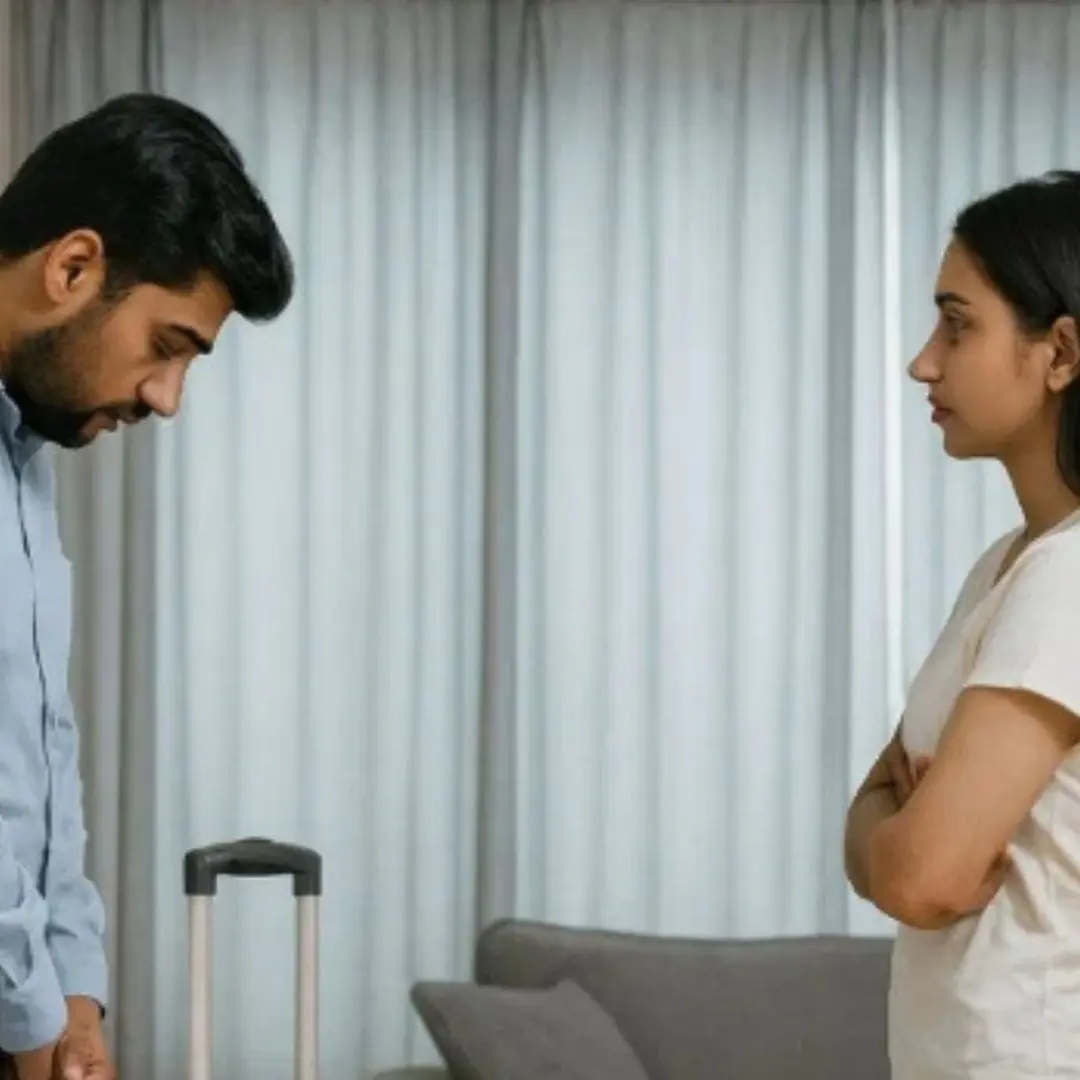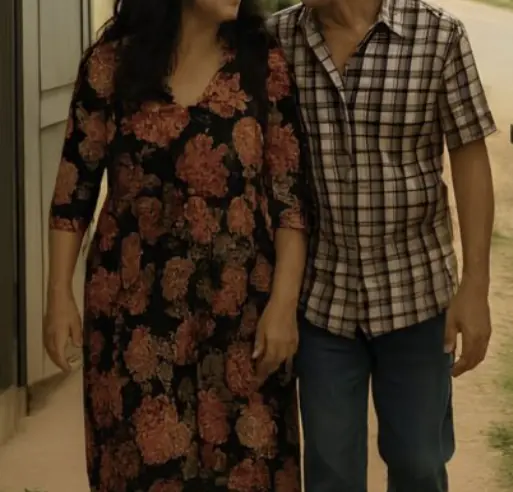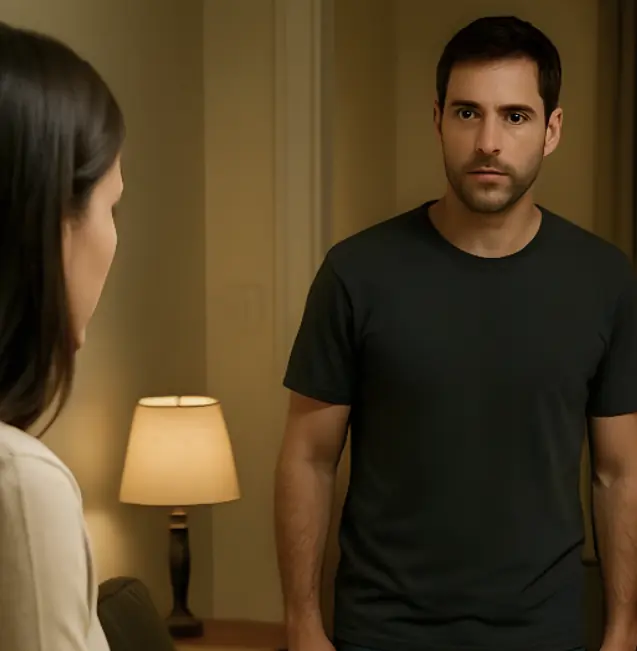
A Hidden Note Reveals the Truth After Our Daughter’s Tragic Passing

The morning sun filtered weakly through the curtains, casting pale light over the empty room that once pulsed with laughter. A small bed, perfectly made. A shelf of books, untouched. When I opened the door, I still expected to hear her voice—even though I knew it wouldn’t come. The house had become a museum of silence since our daughter passed away. Every step I took felt like walking through memories that refused to fade.
Grief has a sound. It’s not loud—it’s heavy. It fills every corner and lingers in simple things: a toothbrush, a favorite mug, a half-finished drawing on the fridge. People told us time would heal. But time only taught us how to pretend. And so, months passed, and our home stood still… until the day we found the note.
It happened on a rainy afternoon. My husband was fixing the leaking roof, and I was sorting through her old notebooks—something I hadn’t had the courage to do before. I opened the third drawer of her desk and found a journal neither of us had seen. On the last page, folded carefully between two pressed flowers, was a handwritten note sealed with clear tape. The words on the outside simply said: “For when you’re ready.” I froze.
My hands trembled as I called my husband. When he entered the room, covered in dust from the attic, he saw the note and went completely still. We exchanged no words. Instead, we sat on the floor together, and slowly peeled away the tape. The paper crackled, aged and delicate. But her handwriting—gentle and looping—was still clear. We both held our breath as I began to read.
She wrote about things we never knew she struggled with—how she felt overwhelmed at school, how she hid her sadness to protect us, how she didn’t want to be a “burden.” She apologized for every time she cried. Apologized. As if feeling pain was something to be sorry for. My heart broke in a way it never had before. But then came the most painful line of all:
“I don’t want to disappear without leaving a little light. So if you’re reading this… please live for me.”
I didn’t cry at first. I couldn’t. I just felt a deep, aching stillness. The rain outside grew heavier, pattering against the windows like tears we couldn’t shed yet. We kept reading. She spoke about hopes she never shared—dreams of traveling, helping others, learning the piano better. She wrote about a boy she liked, but didn’t tell us because she was afraid we’d worry. She said she loved us, but didn’t know how to ask for help. She thought her pain made her “weak.”
That word… weak. It echoed in my mind like an accusation against all of us who failed to see her hurt.
When I finally looked at my husband, he had his face buried in his hands. No sobs, just silent sorrow. He whispered, “Why didn’t she tell us?” But the question had no answer. Grief doesn’t negotiate—it only teaches, often too late.
We spent the next weeks reading her journals, following the breadcrumbs of her thoughts. She had left little notes hidden around the house. One under her mattress. Another inside a book. A third taped behind her mirror. Each one carried pieces of the girl we never truly knew—compassionate, scared, brave, and deeply human. She didn’t want to die. She just wanted the pain to stop.
There was one final note—a small envelope taped to her music box. Three words on it: “Don’t blame yourselves.”
Inside, she had written a simple message:
“I didn’t leave because of you. I left because I couldn’t understand myself. But if my story can help someone else, then maybe I won’t be gone completely.”
Those words changed everything.
We decided we couldn’t stay silent anymore. We reached out to her school, then to a local support group. We began telling her story—not as a tragedy, but as a reminder. At first, speaking about her felt like ripping open a wound, but slowly, it became a way to let her voice live on. Parents began to ask their children how they truly felt. Students opened up about their struggles. The principal even started a mental health program in her honor. People began listening to one another in ways they hadn’t before. That was her light—the one she wished for when she wrote her note.
Months later, we converted her bedroom into a quiet space for counseling sessions. We kept her bookshelf, her music box, her favorite posters. But we added soft chairs and warm lights. We called it Her Corner of Hope. Every time someone walks in, they see a framed quote from her note:
“Please live for me.”
I often sit by that door and listen to the sound of healing. It’s not loud. It’s soft—like her voice.
Sometimes, I imagine what she would say if she were here. I think she might smile shyly and say she didn’t expect to change anything. She probably thought her words were small. She never understood that true strength isn’t always loud—it’s honest.
One evening, I stood alone in her room, now filled with gentle candles and support group pamphlets. I turned the music box and let it play her favorite melody. For the first time, I didn’t feel only sadness. I felt presence. A quiet strength. And a promise.
We didn’t lose her completely.
Because love doesn’t disappear—it changes form. Because grief is not an ending—it is the proof that something mattered. And because a hidden note, found on a rainy afternoon, can become a lifeline for others.
Her story lives on—not in silence, but in every voice that speaks up. And sometimes, late at night, when the world is quiet and the stars are soft above the roof, I whisper into the darkness:
“We’re living for you. Just like you asked.”
And somewhere in the stillness, I feel a light that doesn’t fade.
News in the same category


“What time are you meeting your mistress today?” the wife asked her husband

My husband secretly went on a 15-day trip with his “best friend.” When he returned, I asked him a single question that paralyzed him

At Her Son’s Wedding, the Maid Was Humiliated — Until the Bride’s Father Spoke the Truth…

I hid the truth about my business and income from my fiancé and his family, and at a family dinner they found out the truth

The father gave his sick daughter a dog. When the girl passed away, the dog ran away, and the father was willing to do anything to find it

An orphan who grew up in an orphanage got a job as a waitress in a prestigious restaurant. But after she accidentally spilled soup on a wealthy customer, her fate changed drastically

My Sister Slapped My Daughter for Being ‘Too Noisy’ and My Parents Laughed

My Sister Took My Millionaire Fiancé, But Fate Reunited Us at Mom’s Funeral

My Father’s 65th Year and the Truth Behind His Secret

The Shocking Discovery of a $100 Million Fortune After Evicting Her Adoptive Mother

The Stray Cat Who Changed The Street And Stole Everyone’s Heart

When His New Life Gained a Full-Time Roommate

Mom disappeared on my birthday… And only ten years later did I realize it wasn’t an escape and learned the truth

“You’re jealous of your brother, he has a family and you’re all alone!” my mother shouted. But I kicked her out of my home along with her suitcases

My Mom’s Old Jewelry Box Was Empty—Except for a Note With My Husband’s Name

I Found a Hidden Room in Our Basement—And My Husband Swore It Wasn’t Ours

A loyal dog’s unexpected warning that transformed a family’s future
News Post

How a Loyal Dog Unveiled a Deadly Conspiracy in a Texas Death Row Case

“What time are you meeting your mistress today?” the wife asked her husband

My husband secretly went on a 15-day trip with his “best friend.” When he returned, I asked him a single question that paralyzed him

At Her Son’s Wedding, the Maid Was Humiliated — Until the Bride’s Father Spoke the Truth…

I hid the truth about my business and income from my fiancé and his family, and at a family dinner they found out the truth

Creamy Smothered Chicken with Spinach, Potatoes, and Mushrooms

The father gave his sick daughter a dog. When the girl passed away, the dog ran away, and the father was willing to do anything to find it

An orphan who grew up in an orphanage got a job as a waitress in a prestigious restaurant. But after she accidentally spilled soup on a wealthy customer, her fate changed drastically

Do You Have Little White Bumps by Your Eyes? Learn What Milia Means for Your Skin

My Sister Slapped My Daughter for Being ‘Too Noisy’ and My Parents Laughed

My Sister Took My Millionaire Fiancé, But Fate Reunited Us at Mom’s Funeral

My Father’s 65th Year and the Truth Behind His Secret

The Shocking Discovery of a $100 Million Fortune After Evicting Her Adoptive Mother

The Stray Cat Who Changed The Street And Stole Everyone’s Heart

When His New Life Gained a Full-Time Roommate

How a retirement celebration uncovered a family secret that changed everything

Classic Stuffed Bell Peppers

Garlic Butter Beef and Spinach Tortellini
